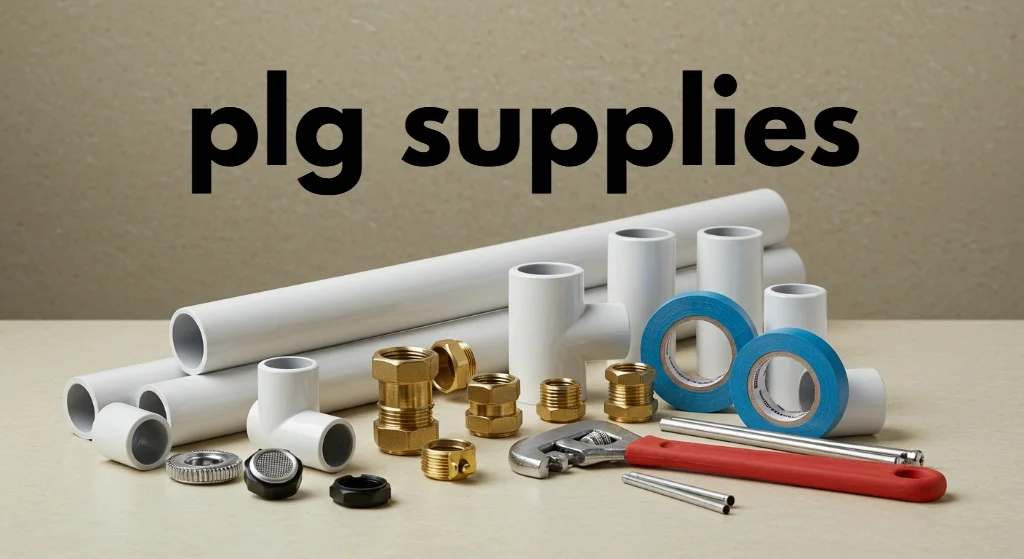In the world of business and technology, PLG (Product-Led Growth) has become a buzzword. Companies adopting PLG strategies rely heavily on the right tools and supplies to streamline their processes and achieve growth. In this guide, we’ll explore everything you need to know about PLG supplies, their importance, and how to choose the best ones for your business.
What Are PLG Supplies?
PLG supplies refer to the tools, software, and resources that support a Product-Led Growth strategy. These supplies are designed to help businesses:
- Enhance product usability.
- Improve customer onboarding.
- Automate workflows.
- Analyze user behavior for better decision-making.
By leveraging the right PLG supplies, companies can focus on delivering value through their product, leading to organic growth and customer retention.
Why Are PLG Supplies Important?
Implementing a PLG strategy without the right supplies is like building a house without tools. Here’s why they are essential:
- Streamlined Onboarding: Tools like interactive walkthroughs and tutorials ensure users quickly understand your product.
- Data-Driven Insights: Analytics platforms help track user behavior, enabling you to make informed decisions.
- Automation: Automating repetitive tasks saves time and reduces human error.
- Scalability: The right supplies grow with your business, ensuring long-term success.
For more insights on how to implement PLG strategies effectively, check out our Product-Led Growth resources.
Types of PLG Supplies
Here’s a breakdown of the most common types of PLG supplies:
1. Customer Onboarding Tools
These tools help new users get started with your product. Examples include:
- Interactive Tutorials: Step-by-step guides embedded in your product.
- Knowledge Bases: Centralized hubs for FAQs and documentation.
2. Product Analytics Platforms
Analytics tools provide insights into how users interact with your product. Key features include:
- Heatmaps.
- Funnel analysis.
- Retention tracking.
3. Automation Tools
Automation tools handle repetitive tasks, such as:
- Sending onboarding emails.
- Scheduling product updates.
4. Collaboration Tools
For teams working on PLG strategies, collaboration tools are essential. Examples include:
- Project management software.
- Communication platforms.
How to Choose the Right PLG Supplies
Selecting the right PLG supplies can be overwhelming. Here are some tips to guide you:
1. Define Your Goals
Ask yourself:
- What do I want to achieve with my PLG strategy?
- Do I need tools for onboarding, analytics, or automation?
2. Consider Scalability
Choose supplies that can grow with your business. For example, a small analytics tool might work now, but will it handle thousands of users in the future?
3. Evaluate User-Friendliness
Your team and customers should find the tools easy to use. Complicated tools can hinder productivity.
4. Check Integration Capabilities
Ensure the supplies integrate seamlessly with your existing tech stack.
For a curated list of the best PLG tools, visit our recommended tools page.
Top PLG Supplies in 2025
Here’s a table summarizing some of the best PLG supplies available today:
| Category | Tool Name | Key Features | Website |
|---|---|---|---|
| Customer Onboarding | WalkMe | Interactive walkthroughs, user guidance | walkme.com |
| Product Analytics | Mixpanel | Funnel analysis, retention tracking | mixpanel.com |
| Automation | Zapier | Workflow automation, app integrations | zapier.com |
| Collaboration | Slack | Team communication, integrations | slack.com |
Benefits of Using PLG Supplies
Adopting the right PLG supplies can transform your business. Here are some key benefits:
- Improved User Experience: Tools like onboarding software ensure users have a smooth experience.
- Increased Efficiency: Automation tools save time and reduce errors.
- Better Decision-Making: Analytics platforms provide actionable insights.
- Higher Retention Rates: Engaging users with the right tools keeps them coming back.
Common Challenges and How to Overcome Them
While PLG supplies offer numerous benefits, businesses may face challenges such as:
1. High Costs
Some tools can be expensive. To overcome this:
- Start with free or affordable options.
- Scale up as your business grows.
2. Integration Issues
Not all tools integrate seamlessly. To avoid this:
- Check compatibility before purchasing.
- Use middleware like Zapier for integrations.
3. Learning Curve
New tools can be difficult to learn. To address this:
- Provide training for your team.
- Choose user-friendly tools.
For more tips on overcoming PLG challenges, visit our blog.
Case Study: How PLG Supplies Transformed a SaaS Business
Company: SaaSify Inc.
Challenge: Low user retention and high churn rates.
Solution: Implemented PLG supplies, including onboarding tools and analytics platforms.
Results:
- 30% increase in user retention.
- 20% reduction in churn rates.
- Improved customer satisfaction scores.
Want to achieve similar results? Explore our PLG solutions.
FAQs About PLG Supplies
1. What are the must-have PLG supplies for startups?
Startups should focus on:
- Onboarding tools.
- Basic analytics platforms.
- Affordable automation tools.
2. Can I implement PLG supplies on a budget?
Yes! Many tools offer free plans or affordable pricing for small businesses.
3. How do I measure the ROI of PLG supplies?
Track metrics like:
- User retention rates.
- Customer satisfaction scores.
- Revenue growth.
For more FAQs, visit our help center.
Conclusion
PLG supplies are the backbone of any successful Product-Led Growth strategy. By choosing the right tools, you can enhance user experience, improve efficiency, and drive growth. Whether you’re a startup or an established business, investing in PLG supplies is a step toward long-term success.
Ready to take your PLG strategy to the next level? Check out our PLG resources and tools for expert guidance.


